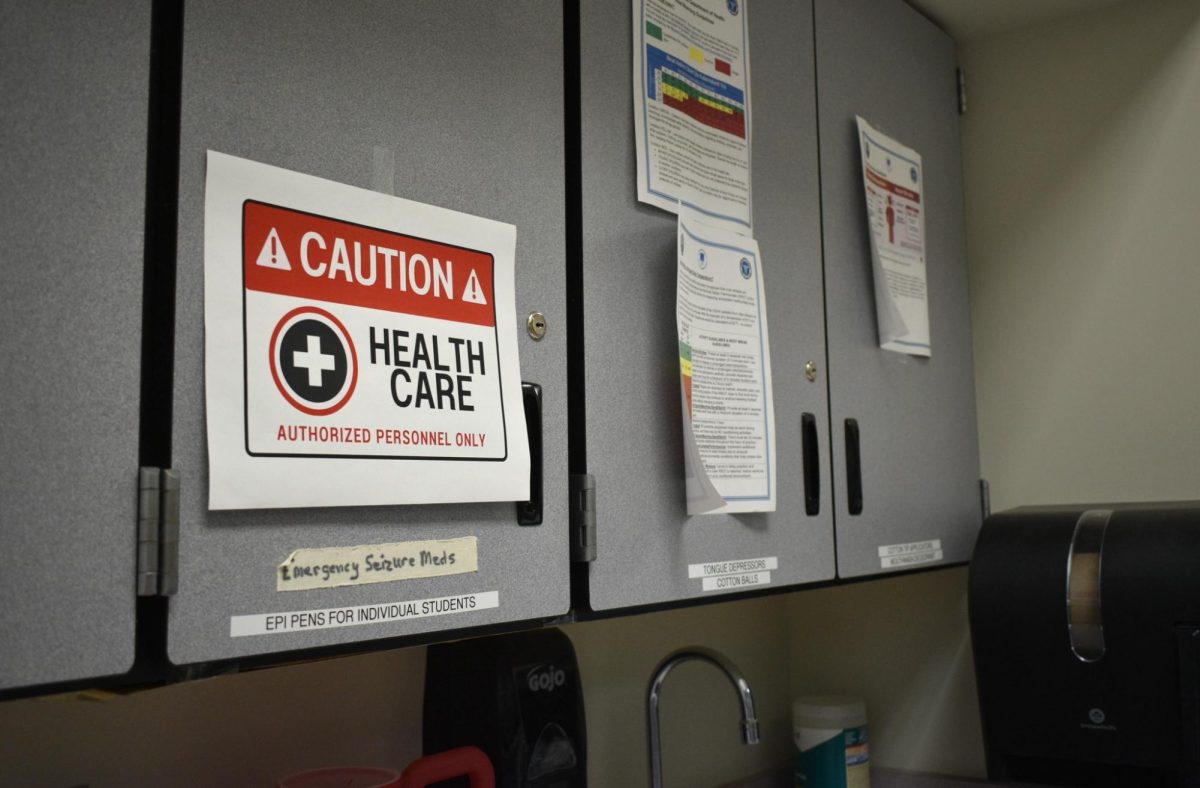The fiscal cliff is a wonder indeed. It is the period of time where representatives of the country and the media alike will all gather together to cry and shriek about the doom that is certain to befall their great nation. Falling off said cliff will cause an already weak economy to go into another recession. However, I assert that this is less of a cliff, and more of an obstacle course in the middle of a road. It is also rather avoidable, and by taking the trends that Congress tends to follow, it is quite easy to see how they will deal with this.
Don’t let the sensationalism of current media headlines fool you. This cliff would approach us because of the series of federal spending cuts and tax increases that are all scheduled to take effect as 2013 begins. It’s quite obvious that if said cuts and tax increases were to into effect at roughly the same time, we would most likely sink into another recession. However, it’s easy to see how lawmakers will handle the obstacle course that I mentioned earlier. We will not head over any sort of cliff. Why am I so sure? Well, I just have to look at these obstacles.
These spending cuts that I mentioned threaten to decrease federal spending by about nine percent. The cuts are often known as “sequestration”. Sequestration is the result of bipartisan efforts from Congress and President Obama that is scheduled to take effect on Jan. 2, 2013. If sequestration did end up taking effect, pentagon and domestic program spending alike would decrease. For multiple reasons, nobody wants sequestration to take effect. It was never even planned to happen. It was simply a threat so extreme and radical that lawmakers would be forced into creating a deficit-reducing budget in order to avoid it. The very idea that sequestration could happen is nonsense. However, lawmakers will deal with it sooner or later.
In August of 2011, lawmakers were very close to not raising the limit of borrowing the United States does. Failing to raise this “debt ceiling” would raise interest rates for everyone. However, we very nearly avoided this disaster, as lawmakers established a last-minute plan. They raised the debt ceiling by $2.4 trillion, yet lowered the expected deficit also by $2.4 trillion over the next 10 years. In shorter terms, they put to plan a completely arbitrary and nonsensical deficit-reduction plan that had no input from experts. These lawmakers didn’t even detail how they would lower this deficit by that much- they left that to what they called a “super committee”. This 12-person group failed this task, however, and most likely forced these cuts that are supposed to take place.
Sequestration is said to lead to the loss of two million jobs, the likes of which currently exist in the private sector. This creates an ever-painful reality that a local small company will have a harder time surviving these budget cuts than the Pentagon will, since the Pentagon is made to survive reductions all of the time.
However, everyone hates sequestration, and will do anything they can to make sure it doesn’t happen. This means, in fact, that it won’t happen. What should be done is a complete cancelling of sequestration, and the replacement of these cuts with a methodical and long-term approach to dealing with the deficit. This, unfortunately, is unlikely, and Congress will most likely delay sequestration by about 8 months, to avoid the fiscal cliff that everyone is so afraid of.
Sequestration is just one obstacle in this full-blown course that is expected to come upon us next year.
At the end of this year, there is a certain policy that is scheduled to expire: expanded unemployment benefits. These benefits give the jobless a very needed lifeline. Unemployment insurance is one of the best ways for the Government to strengthen an already weak economy. It is likely that congress will let this policy expire. However, it is important to note that the expiration of this policy will very secularly only affect the unemployed, which will not completely crash our economy.
Health care in this country is another obstacle. Specifically the affordable care act, more popularly known as Obamacare. This act includes some new taxes that are expected to go into effect in 2013. However, these taxes are so miniscule that they will most plausibly not have a significant impact on the economy. The more controversial taxes from Obamacare will not go live until 2014.
In December of this year, the tax cuts that George Bush implemented are scheduled to expire. These tax cuts were for everyone. There is already a compromise in Washington to keep the lower rates for everyone under a $250,000 income. From this we can decide that middle-class families won’t have their taxes raised. While Republicans in Congress wish to retain these tax cuts for everybody in order to keep lower tax rates for everyone, President Obama has stated multiple times that he is staunchly against any legislation to prevent these tax cuts form expiring. Letting these tax cuts expire, however, would raise billions of dollars in tax revenue next year.
The Bush-era tax cuts are the most important of all of these obstacles. It is almost impossible to predict how Congress will act on them. On one hand, the Republicans of Congress will most likely try to get Obama into a partisan death-grip in order to maintain these tax cuts, while the Democrats will try to let them expire in favor of returning to a tax rate style very similar to Bill Clinton’s tax policy.
At the very least, we know something will be done about this “fiscal cliff.” While the economy as of late hasn’t been very consistent, Congress has, and it’s obvious how they will face this obstacle course.
Disclaimer: The views and opinions expressed in this article are those of the authors and do not necessarily reflect the official position of the Parkway School District.

![Leaning on the podium, superintendent Melissa Schneider speaks to Parkway journalism students during a press conference. Schneider joined Parkway in July after working in the Thompson School District in Colorado. “My plan [to bond with students] is to get things on my calendar as much as possible. For example, being in [classes] is very special to me. I am trying to be opportunistic [meeting] kids [and] being in [the school] buildings. I have all the sports schedules and the fine arts schedules on my calendar, so that when I'm available, I can get to them,” Schneider said.](https://pwestpathfinder.com/wp-content/uploads/2025/09/IMG_5425-1200x943.jpeg)


![Red, white and blue, the American flag holds the values of our democracy. The fight that we once endured has returned, as student journalists and senior correspondents across the country are losing their voices due to government control. “[Are] the White House and [the] government limiting free speech [and] freedom of the press? Yes [they are],” chief communications officer of the Parkway School District and former journalist Elisa Tomich said.](https://pwestpathfinder.com/wp-content/uploads/2025/03/Untitled-design-14.jpg)
![A board in the Parkway West counseling department displays pennants of selective universities. With a wide range of students interested in attending, it’s important that these schools have clear priorities when deciding who to admit. “[Washington University] had the major that I wanted, psychology, philosophy, neuroscience. That's a holistic study of the brain, and [WashU is] the only college in the world that offers that. That's the main reason I wanted to go; I got into that program,” senior Dima Layth said.](https://pwestpathfinder.com/wp-content/uploads/2025/02/Flag-1.png)

![Within the U.S., the busiest shopping period of the year is Cyber Week, the time from Thanksgiving through Black Friday and Cyber Monday. This year, shoppers spent $13.3 billion on Cyber Monday, which is a 7.3% year-over-year increase from 2023. “When I was younger, I would always be out with my mom getting Christmas gifts or just shopping in general. Now, as she has gotten older, I've noticed [that almost] every day, I'll open the front door and there's three packages that my mom has ordered. Part of that is she just doesn't always have the time to go to a store for 30 minutes to an hour, but the other part is when she gets bored, she has easy access to [shopping],” junior Grace Garetson said.](https://pwestpathfinder.com/wp-content/uploads/2024/12/DSC_0249.JPG-1200x801.jpg)

![Senior Sally Peters stands in the history hallway, contemplating her choices in the 2024 United States and Missouri elections on Nov. 5. As a member of Diplomacy Club, Peters has discussed key candidates and issues in contemporary American politics. “[As students], we're starting to become adults. We're realizing how much the policies that are enforced and the laws that make it through the House and Senate are starting to affect us. [Opportunities such as] AP [U.S.Government] and Diplomacy Club [make elections feel] a lot more real,” Diplomacy Club vice president and senior Nidhisha Pejathaya said.](https://pwestpathfinder.com/wp-content/uploads/2024/10/Flag-1-1.png)
![Mounting school pressure can leave many students overworked and overstressed. Schools must give students the necessary resources to help assuage student mental health issues and prevent the development of serious crises. “The biggest thing [schools] can do [to protect student mental health] is offer more time [to do work], like a study hall, or offer more support from teachers so that students don't feel stressed out and can get help in areas that they need,” senior Bhavya Gupta said.](https://pwestpathfinder.com/wp-content/uploads/2024/09/unnamed-4.jpg)